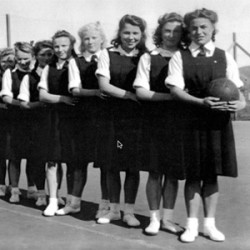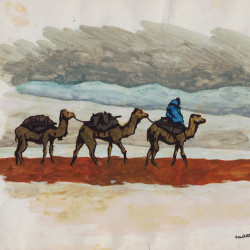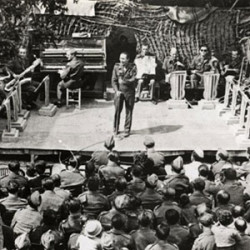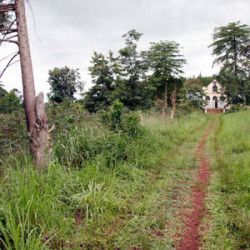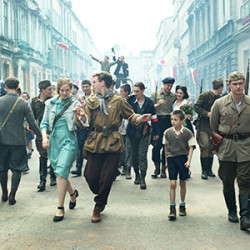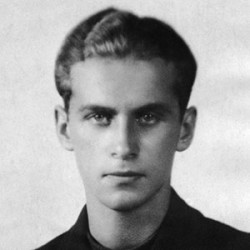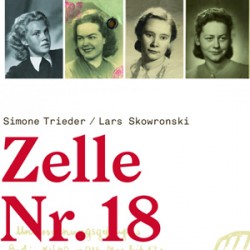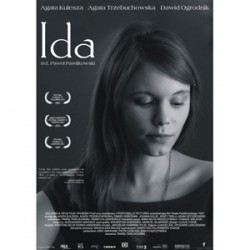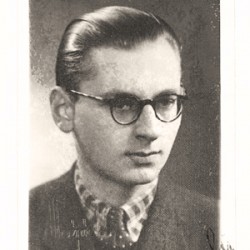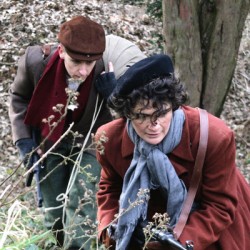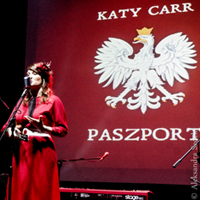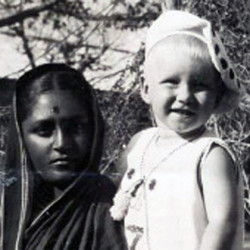2015 Vol. 7 No. 1 — Spring / Features
It is important to understand the welcome practices of host countries and their treatment of child refugees, and the long-term well-being and adaptation of both the children and their host countries. Amanda Chalupa takes a look at what is possibly the gold standard, set by the people of New Zealand.
2015 Vol. 7 No. 1 — Spring / Commentary / Features
When the Soviets deported Polish citizens from their zone of occupied Poland, the Poles began a journey that would cover several continents and oceans. Among the most amazing is the saga of the children’s odyssey.
2014 Vol. 6 No. 3 — Fall-Winter / Features / Music
When Beth Holmgren writes about Poland’s interwar cabaret, you can almost hear the champagne corks flying. This time, the cabaret goes to war. Isn’t that when you need it most?
2014 Vol. 6 No. 3 — Fall-Winter / Features
The world’s largest crocodiles cooled off in nearby water, and hippos and baboons helped themselves to lunch. But it was entertaining. And Irene Tomaszewski was there.
2014 Vol. 6 No. 3 — Fall-Winter / Films
Sometimes art can touch what intellectual debates only circle, but that touch can cause searing pain.
2014 Vol. 6 No. 3 — Fall-Winter / Books / Commentary
Compared to Keats, Marcel Proust, and even to “Bob Dylan, William Shakespeare, Pablo Neruda and James Dean rolled into one,” Krzysztof Kamil Baczyński was passionate, erotic, heroic, idealistic and incomparably prolific. His life and his art were one, his death made him legend.
2014 Vol. 6 No. 2 — Summer / Books
by CR × on June 14, 2014 at 3:40 pm ×
The memorial Centre in the German city of Halle Saale will unveil a monument to Krystyna Wituska, a young Polish prisoner executed on June 26, 1944, and two German authors will launch their book, Zelle Nr. 18: Eine Geschichte von Mut und Freundschaft (Cell No. 18: a History of bravery and friendship) to mark the 70th anniversary of her death.
2014 Vol. 6 No. 1 — Winter-Spring / Films
Paweł Pawlikowski’s starkly beautiful black and white film, Ida, is one of the best of 2013. But reviewer Jodi Greig asks: can aesthetics blind one to the deeper meaning?
2014 Vol. 6 No. 1 — Winter-Spring / Books
With access to hitherto unused archives, historian Alexandra Richie brings little-known facts and a sobering description of the barbaric destruction of the people and the city of Warsaw.
2014 Vol. 6 No. 1 — Winter-Spring / Features
Władysław Bartoszewski, whose archive is a major source for Warsaw 1944, an impressive new book about the Warsaw Uprising, is an unapologetic patriot, a modest hero, and a man dedicated to peace.
2014 Vol. 6 No. 1 — Winter-Spring / Films
by Dan Ford × on March 30, 2014 at 5:10 am ×
A new documentary series from Sky Vision and the History Channel casts a long overdue spotlight on Poland’s impressive contribution to WWII. It’s entertaining, writes reviewer Daniel Ford, and enough to send a viewer looking for more.
2013 Vol. 5 No. 3 — Fall / Interviews / Music
She is neither Polish nor British. She is a 21st century hybrid. And when she sings about Poland, she is an author of renaissance, not an author of requiem.
2013 Vol. 5 No. 2 — Summer / Books
Anuradaha Bhattacharjee turned a rejected newspaper story into a PhD thesis and a book. And what a story: orphaned children, a loving maharaja, an inspiring Gandhi, and the kindness of strangers.
